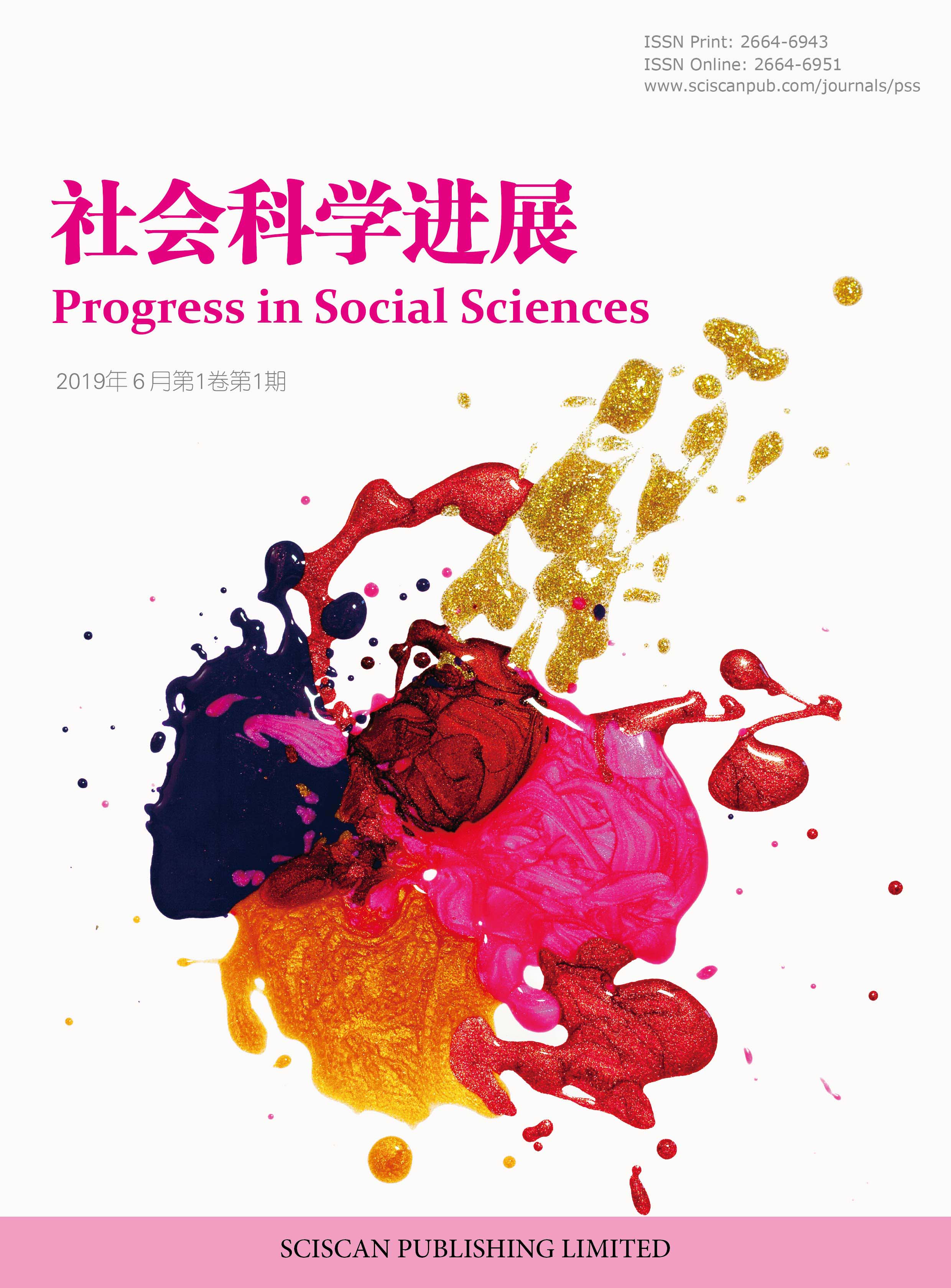Progress in Social Sciences
早期儒家思想和希伯来信仰中的家庭及友谊观比较——以《孟子》和《希伯来圣经》为主要考察对象
A Comparative Study of Family and Friendship in Early Confucian Thought and Hebrew Faith: A Focus on Mencius and the Hebrew Bible
- Authors: 龙爱仁
-
Information:
浙江外国语学院,杭州
-
Keywords:
Mencius; Hebrew Bible; Family; Friendship; Divine love; Benevolence《孟子》; 《希伯来圣经》; 家庭; 友谊; 神爱; 仁道
- Abstract: The family serves as the cornerstone of human society, with “friendship” acting as a crucial bridge between familial bonds and the broader community. Both Confucian philosophy and Hebrew religious thought place significant emphasis on family and friendship, prioritizing the cultivation and extension of family order while upholding ethical principles such as filial piety. Despite these shared values, the two traditions diverge in their approaches. Hebrew civilization views family order and friendship as grounded in divine love, granting friendship equal importance to family ethics and integrating it into the broader framework of family values. In contrast, Confucianism regards friendship as an extension of fundamental virtues like benevolence and filial piety but does not attribute to it a direct role in shaping the family structure. Consequently, Hebrew thought weaves morality, law, and faith into a cohesive family system, while Confucianism develops a family model focused on morality and social order. 家庭是构成人类社会的基本单元,“友谊”则是生命个体从家庭走向社会的重要纽带。中国的儒家思想与希伯来的宗教思想都十分关注家庭与友谊问题。二者都注重家庭秩序的构建与扩展,都重视“孝悌”等伦常观念。然而希伯来文明认为家庭秩序与友谊都来自神爱,友谊与家庭伦理处于同等地位,友谊也可以参与家庭伦理。儒家则强调友谊是仁孝等基础伦理的延伸,友谊不能直接参与家庭建设。相应的,在希伯来文明家庭观中,道德、律法、信仰三者结合成一个整体,而儒家文明中,则形成了道德与秩序为主的家庭形态。
- DOI: https://doi.org/10.35534/pss.0701016
- Cite: 龙爱仁.早期儒家思想和希伯来信仰中的家庭及友谊观比较——以《孟子》和《希伯来圣经》为主要考察对象[J].社会科学进展,2025,7(1):91-96.

每个人都生活在关系之网中,亲人与朋友则是这张网络最重要的编织者。生而为人,在孩提时代,在与家庭成员的交往中便产生了最初的“关系”。随着个体的成长,在与他者的交流中,又逐渐产生了“友谊”。
古老的犹太教与中国儒家哲学都对“家庭”和“友谊”的问题有深入思考。两种思想的影响绝不止于理论层面,两个族群的人在这些思想的指引下生活了数千年。数千年来,在不同思想的影响下,拥有古老文明的犹太社会和中国社会的家庭及友谊观念一直在不停变化。尤其是近代以来,传统哲学思想与宗教思想对社会的影响力逐渐减弱,西方的自由性家庭模式和友谊观 (“独立性友谊”)成为主流,而随着全新的互联网媒介的广泛传播,现代社会对“家庭”和“友谊”两个词产生了全新的理解。面对这种新的局面,有必要回溯源头,对这两种文明的家庭和友谊观进行反思。
1 早期犹太的家庭和交友思想
希伯来和犹太文明中有至高无上的“爱”的概念,它指耶和华对世人无条件的、普遍的爱。人与人之间的爱是对上帝之爱的延伸。无论是家庭之爱,还是朋友之爱,毫无疑问都源于此。
1.1 犹太教“家庭”以及“人际关系”思想的基础
在希伯来的人生观里,神的律例典章规范着人的家庭和交友范围,人与人之间的交往得符合《圣经》的基本伦理道德[1],并模仿神对“同胞”的“爱”。这种观念可以在上帝造人的故事中找到依据。[2]男女与他们的创造者的形象是相似的,就证明人与人的关系中被赋予了这种“爱”。在《创世纪》中,“爱”第一次出现在亚伯拉罕和上帝的对话中:耶和华试图考验亚伯拉罕,并要求他把他所“爱”的儿子——艾萨克——献给神。(《创世纪·22:1-18》)故事的关键并不在于具体父子俩(家庭成员之间)的关系,而是在于神的绝对主导权。从亚伯拉罕起,耶和华与人的关系基于服从神的命令。
然而,在调查分析整本《圣经》之后,我们惊讶地发现:“没有一个词可以直接用来表述友谊。可以说,友谊是爱的原初形式,因此不存在单独的指称爱的词。爱就是对同胞的爱,只能是友谊。其中也包括人对上帝的爱乃至上帝对人的爱,这种互动的关系也是建立在友谊和约的兄弟情之上的。归根结底,所有这都是忠诚,只是以友谊和爱的某种特殊形式表现出来,但却从未变成其他的东西,也就是说依然是忠诚。”[3]
尽管如此,对“所有人”的爱和对“家属”的爱以及“友谊”是三个完全不一样的东西,前者是对所有人的态度,而后两者是对某个特殊群体或个体的关系。换言之,它们是来自神爱的,三种不同的爱。进而,虽然《圣经》并没有把“友谊”当作抽象议题予以探讨和规范,但是从其对家属成员之关系的规定和朋友之间的关系所涉及的不同律例典章中,我们就不难读出一种独特的希伯来的家庭和友谊观:道德、律法、信仰三者结合成一个整体,这才是凝聚家庭的坚定内核。
希伯来家庭观是从其教义引申出来的家庭道德伦理规范,它既涉及人神关系,同时也涉及人伦关系。《圣经》中的每一个以家庭为内容的教义和故事都以神圣律法为框架、以伦理道德为标准。[4]“十诫”的内容,即人与神、家庭和社会伦理道德的内容,具有至高无上的地位。由此可知,希伯来的伦理道德思想最初依赖于人与神所建立的契约关系。
1.2 希伯来人的家庭和友谊规范差异何在:以《路德记》为例
《路德记》的开篇第一章就叙述了关于一位名叫拿俄米的以色列寡妇的悲惨故事。当她的国家遭遇饥荒时,拿俄米和她丈夫以利米勒以及两个儿子,往摩押逃难寄居。不幸她丈夫和两个儿子在异国先后去世,并留下两个儿媳,一个名叫俄珥巴,一个名叫路得。拿俄米在听到她家乡的饥荒已有所缓解时,就计划和两个儿媳回到自己的家乡犹大王国,并希望她们俩能分别回到娘家生活且平安再婚。拿俄米对她儿媳分析情况,指出自己毕竟年老,无法再生育,而即使她有幸生子的话,她们也不应该“等着他们长大”嫁给他们。在此,学者指出,假设拿俄米再度产子,两位儿媳也没有任何宗教上的义务和他们结婚,因为律法只规定有义务与同父兄弟结婚。
当拿俄米的两个儿媳听完她们婆婆的话之后,俄珥巴立刻听从她的安排、默默亲吻告别,但路德舍不得留下拿俄米独自一个人。后来,一切柳暗花明,路德陪她的婆婆回到家乡之后就重新结婚,和她丈夫一起生养了一个儿子。当路德不愿与拿俄米分开时,这种行为并不是以实现假设未来婚姻的义务为目的,而是“纯粹基于自愿形式的友谊关系”。[5]
从表面上看,《路德记》所阐述的这篇短故事涉及女性之间通过婚姻关系所形成的家庭成员之间的朴素忠诚和友谊。但再深入分析,我们可得出另一种解读:叙述者不仅仅是赞美路德对婆婆的友谊,而更是褒扬路德对她死去的丈夫和他家族的忠诚和爱。路德知道:在希伯来律法中,传宗接代的地位至高无上,并且她知道一个死去而无嗣的男人的兄弟应该娶死者的遗孀,她可以跟她嫂子俄珥巴一样离开拿俄米,有可能将来会嫁给另一个家庭去并生子。但在路德看来,在拿俄米和她家庭的悲惨情况之下,和家外的男性生子远远不够道德,她想履行对已故丈夫的基本义务,她欠他一个子嗣。
最终,在回到犹大王国之后,婆媳俩人与至近的亲属波阿斯有了交往,他就同意从拿俄米手中置买属于她已故的丈夫利米勒和她两个儿子基连、玛伦的财产并娶路德为妻。《路德记》载:“又娶了玛伦的妻摩押女子路德为妻,好在死人的产业上存留他的名,免得他的名在本族本乡灭没。”(4:10)《路德记》的最后一段就肯定了波阿斯和路德的合法关系。他们的婚姻因建立在对真理的绝对忠诚上,因此他们所生养的儿子,拿俄米的后裔,就是闻名世界的以色列国王——大卫。由此,婆媳之间的友谊所反映出的不仅是对神爱的忠诚,还有忠诚所体现的必然的因果报应关系。
从《路德记》中,我们可以得出这样的结论:路德的身份很特别,她不是天生的犹太人,但是她的一切举动都表示着她乐于尽一切努力去履行已故丈夫所信仰的犹太法规,为他获得死后的精神和名声延续。路德作为异族的摩押女子“直到如今被视为皈依犹太信仰的典范,因为她坚定不移、欢喜快乐地接受独一上帝与犹太人,作为自己的上帝和同胞。”[6]因此,《路德记》不仅仅是简单的婆媳之间的跨代友谊故事,也可把它理解为跨文化和宗教的寡妇对已故丈夫的忠诚友谊的赞美故事。
1.3 希伯来文明中家庭与友谊的关系
综上所述,在严格意义上讲,上述故事主要涉及外邦人通过和以色列人形成“圣约”关系所产生的“集团责任的胶合力”的义务关系。这是说,路德的首要责任就是忠诚于希伯来法规典章。但是,因为婆媳之间的凝聚力和忠诚就产生在家庭成员之间所规定的律法框架以外,就使它非纯粹亲情、爱情、婚姻或家庭关系,而更是友谊关系。而且另一个儿媳俄珥巴和婆婆分开,这并不说明她就不爱或不关心她的婆婆。只不过因为她没有像路德那样产生友谊所导致的责任和忠诚,因此她的宗教义务是不同的。进而,虽然路德对拿俄米的忠诚友谊导致前者和至近的亲属波阿斯结婚,但这只是忠诚友谊所产生的附加结果,并不是必然结果,甚至不是律法所规定的义务。《圣经》所要求的是每个个体在面对各自独特情况时,得忠诚于律法所规定的义务。虽然家庭义务和朋友之间的责任是不同的,但这并不排除朋友之间可以承担家庭成员的义务,而由此形成新的家庭。
2 早期儒家的家庭与朋友思想
春秋战国时期,孔子对西周以来的伦理观念进行了总结,开创了儒家思想,孟子继承发扬了这一思想。儒家体系以仁孝思想为核心,“友谊”是其扩展。
2.1 儒家思想中“家庭伦理”的思想基础与具体结构
春秋战国时期,孔子开创了儒家家庭和社会伦理思想。他对西周以来的“天”观和“孝悌”观进行了总结,并奠定了以孝悌伦理思想为核心的儒家体系的基础。“孔子以其理性主义精神与对待人生的积极入世态度,表现出明显的无神论倾向。”[7]其学说从 “仁”“义”“礼”的角度来探讨人的个体和社会性。孔子的家庭伦理观首先体现在孝道上,“他率先提出了孝敬父母的思想……还强调孝悌结合。”[8]总之,孔子学说以“仁”为核心,而“孝悌”是“仁道”的根本。如《学而》载:“孝悌也者,其为仁之本与!”[9]
孟子在孔子开创的孝道思想的基础上,进一步拓展了以“孝悌”为本的家庭伦理观念。首先,孟子同样继承和发展了商周以来的传统天命论,但孟子的“天命”更近于一种不可改变的必然规律:“天已不是那种毫无理性可言、毫无规律可循、完全凭自己的好恶来随意决定一切的主宰之天了。社会的发展,天下的治与不治,有其自身的规律,并不完全以人的意志为转移,表现为客观必然性。”[10]
在社会人伦关系中,个体与家人的关系最为基础。孔孟虽然认为“仁者”无所不爱,但是人还是得把家庭之爱特别是父子之爱放在首位。孟子的“仁”观以血缘关系为出发点,其伦理以“孝悌”为本,即所谓“仁之实,事亲是也”(《离娄上》)。从社会的微观角度来说:“孝”指的是子女对父母的品德;“悌”是兄弟之间的亲爱关系、相互尊重的德行,而从社会的宏观角度来分析:它指的是处理社会中的不同关系的普遍道德规范。因此,在孟子理想人伦关系中,人人都应该有其固定不可改变的责任和贡献。
2.2 “孝高于法”——孟子对家庭伦理与社会伦理冲突的处理
当尽孝与礼法发生冲突时,孟子主张用权变的方式突破礼法,以保全孝道。[11]当“仁义”和法律发生冲突时,孟子认为“孝”在价值排序中拥有一个更高的地位。孟子的“孝悌”道德准则是凌驾于所谓的世俗法律,甚至是普遍的“仁道”原则之上的。但这种孝道准则并不是凭空产生的,它深深根植于人的自然本性。“孝道”是内在道德的潜能外化。这个理论和孔子所说的 “父为子隐,子为父隐”(《子路》),即,儿子决不准出来针对父亲作证,就具有一定相似之处。
此外,《离娄下》载:“世俗所谓不孝者五:惰其四支,不顾父母之养,一不孝也;博弈好饮酒,不顾父母之养,二不孝也;好货财,私妻子,不顾父母之养,三不孝也;从耳目之欲,以为父母戮,四不孝也;好勇斗狠,以危父母,五不孝也。”懒惰、酗酒、贪婪等行为都会损耗子女侍奉父母的精力,同时损伤自己的生命,都是不孝的行为。孟子认为子女一方面要“孝”,另一方面要弃绝“不孝”。
在此基础上,孟子将“孝”的外延扩展开来,上升到国家政治的层面。《尽心上》载:
所谓西伯善养老者,制其田里,教之树畜,导其妻子,使养其老。五十非帛不暖,七十非肉不饱。不暖不饱,谓之冻馁。文王之民,无冻馁之老者,此之谓也。
此虽讲述西伯之仁政,但举养老为例,可见家庭的结构直接扩展到政治上。
除了“孝”以外,“悌”也是家庭中重要的伦常。“悌”主要涉及兄弟长幼之间的关系。孟子说:“徐行后长者谓之弟,疾行先长者谓之不弟”(《告子下》)。兄弟之间的伦常关系是非常具体而微的。《万章上》载:
“万章问曰:‘象日以杀舜为事,立为天子,则放之,何也?’孟子曰:‘封之也,或曰放焉。’ ……曰:‘仁人之于弟也,不藏怒焉,不宿怨焉,亲爱之而已矣。亲之欲其贵也,爱之欲其富也。封之有庳,富贵之也。身为天子,弟为匹夫,可谓亲爱之乎?’”
虽然舜的弟弟象经常试图杀害他,并没有做到“悌”,但是舜作为兄弟,不仅没有对之施加报复,反而把象封为诸侯。因为,在孟子看来,当一个人在家中的角色与社会中角色冲突时,决不能放弃亲情。与“孝悌”的原则相似,孟子把“亲情凌驾于国家法律之上。”[12]这与上述所介绍的约瑟如何宽恕他的兄弟一样,舜也同样饶恕他弟弟的过错。
总之,孟子的伦常规范不受任何外在超然力量的监督,也不带有任何善恶报应色彩,“孝”本身不是一种外在秩序所规定的律法准则,而是自身本能的延展。孟子的天命,具有明确的伦理内涵。孟子所推行的儒家思想,其主要内容规定了父子、君臣、夫妇、长幼、朋友之间的关系,每个个体在家庭内、外都扮演了必然角色。然而,当社会上的各种关系发生冲突时,孟子要求严格地恪守孝道,并认为“传宗接代”和“三年之丧”是孝道之核心。
2.3 孟子的伦理排序:友谊基于孝道
先秦儒家的伦理道德将家族的血缘关系作为社会的核心因素。最早的中国伦理道德准则不仅把家庭内的不同等级关系予以规范,像夫妇互敬、兄爱弟敬等,同时它还把所有家庭外的人际关系,包括非血缘的朋友关系予以规范。
儒家所规范的朋友关系就体现其社会伦理的核心范畴之一。孔子从 “仁”“义”和“礼”的角度出发,探讨人应该怎样生活。行“仁”就是履行道德规范。关于“仁道”的含义,孔子曾经提供了各种解释。“樊迟问仁。子曰:‘爱人’。”(《颜渊》)孔子的“仁爱”观并不是呼吁仁者盲目地建立联络友谊关系,而是倡导个人在一套很明确的伦理道德范围内来进行主观意愿的交友选择。这就是在孔子对子贡求仁时对他的回答:“居是邦也,事其大夫之贤者,友其士之仁者”。(《卫灵公》)人得警惕地选择有益于他的仁者为朋友,避免与那些会损害其德性活动的人交友。
《论语》开篇载:“学而时习之,不亦说乎?有朋自远方来,不亦乐乎?”(《学而》)在孔子看来,学习加上交友是修身的重要途径之一。子曰:“德之不修,学之不讲,闻义不能徙,不善不能改,是吾忧也。”(《述而》)在人格修养的过程中,仁者(朋友)是核心。和朋友交往就可以学习仁道、借以修身。这就是“三人行,必有我师焉”的涵义,其基本目的是: “择其善者而从之,其不善者而改之。”(《述而》)由此可见,在孔子眼里,友谊并不是可以随意建立的。孔子很直截了当地要求弟子不要和品行不如自己的人交朋友。一个品行好的人与缺乏仁心的小人交朋友是不可能的,因为只有在两个人互相尊重的情况下才可能带来道德上的益处。
在孔子的理想中,友谊的本质得起到互为规诫、互为影响的伦理道德约束作用。这就是曾子“三省吾身”的意思,即“与朋友交而不信乎?”(《学而》)的反省含义。即,在孔子的学说中,朋友关系非常重要,它即是三种自我检讨之一。人人都可以受到帮助,并互相学习和模仿彼此的优点,用以纠正自己、监督自己,达到修养身心的目的。
在孟子的思想中,家庭伦理和交友规范是紧密关联的。他认为交友的方式和内涵就能反映出人是否对待父母以孝。
孟子曰:“获于上有道:不信于友,弗获于上矣;信于友有道:事亲弗悦,弗信于友矣;悦亲有道:反身不诚,不悦于亲矣;诚身有道:不明乎善,不诚其身矣。是故诚者,天之道也;思诚者,人之道也。至诚而不动者,未之有也;不诚,未有能动者也。”
(《离娄上》)
作为“孝”的基础, “诚”与“信”和现代汉语的意思并不相同。“诚”可以理解为天然的、自然的、真实的;“信”可以理解为真实,它乃是上天赋予人类的道德境界的本性。“诚”就能让人感动别人。当孟子的学生万章问:“敢问交际何心也?”孟子回答说:“恭也”,即孟子认为人应该用心交友。在孟子学说中,“诚”与“信”被纳入了交友道德的基本准则。
孔孟都认为真正的友谊模式是奠基于“义”的人伦道德之上的。孟子曰:“不挟长,不挟贵,不挟兄弟而友。友也者,友其德也,不可以有挟也。” (《万章下》)而且,“因朋友之间本为一种人际关系的本质属性不可更易,它所受的限制和拘格较之父子、夫妇、兄弟等等其他人伦关系而言可谓稍微少一些。”[14]“舜尚见帝,帝馆甥于贰室,亦飨舜,迭为宾主,是天子而友匹夫也。用下敬上,谓之贵贵;用上敬下,谓之尊贤。贵贵、尊贤,其义一也。”(《万章下》)就是上述的道理。虽然说上属和下属的客观人伦关系依然存在,但由于存在着有“诚”和“信”的友谊关系,彼此之间的关系就更近一些。
由此可见,根据孔孟的逻辑,真正的友谊是基于孝道之上的。但是,朋友们之间因仁道而产生的义务和责任与家庭成员之间的义务关系是不同的。以舜为例:如果是非亲属者想杀害他,舜没有任何义务去宽恕他们。但当舜的父亲和异母弟弟数次设陷阱想杀害他时,他不仅不去抱怨或报复他们,反而一如既往地对自己的父亲和异母弟弟好,“舜对孝的理解,就是看护好自己,保护好自己的生命,好好活着,只要自己活着就是孝顺了。”[15]
3 早期儒家和希伯来家庭以及友谊观的异同分析
《希伯来圣经》的家庭道德和交友伦理最基本的原则是模仿上帝对选民的“圣爱”,而《孟子》则认为,实现人和的关键在于能否得人心。《申命记》呼吁信徒应该模仿耶和华对以色列人的爱。所谓“爱”不仅仅是对耶和华的独一无二性的认可,它还体现在生活的方方面面,具有家庭和社会伦理道德特色。[16]在分析“十诫”的顺序时,我们会发现“孝敬父母”排在“不可杀人”之前。那是因为孝敬父母是爱耶和华的最直接的方式。《申命记·5:16-21》载:“当孝敬父母,使你的日子在耶和华你神所赐你的地上得以长久。不可杀人。不可奸淫……。”耶和华与以色列民是相爱的,彼此之间的表达媒介就是律例诫命。上帝因为“爱”而给予希伯来人家庭规范以及生活上的社会伦理秩序,以色列人只有通过爱耶和华和遵守他的诫命才能够真正地表达出对上帝之“爱”。
在《孟子》里,“天命观”不包括任何人格化或非自然特征。《尽心上》载:“大匠不为拙工改废绳墨,羿不为拙射变其彀率。君子引而不发,跃如也。中道而立,能者从之。”“道”不会以人的意志为转移,这些客观法则是无法改变的。在《孟子》的哲学里,不存在外在的超验的天和人对立的概念。在其学说里,“天”的主要功能是作为伦理、孝悌和社会规范的最高代表和终极支持者。 据此,《孟子》家庭以及人伦观的一个明显特征就是他对“人”的肯定。人能否得天下是靠 “民心”。因此,在孝道与礼法冲突时可以用“权变”,即用理性、客观的方式突破“执一”礼法,以保全孝道。这就说明《孟子》的“孝悌”的道德准则凌驾于所谓的世俗法律之上。但在《圣经》中,希伯来人的家庭模式是受超然神的控制,没有所谓理性或世俗法律。其人伦关系模式是以固定不变的法律规定为标准,人无法用理性去改变它。甚至说在人伦关系中,如果家庭中有违背耶和华意图的成员,无论是长辈还是小辈,其他家庭成员有义务不听从父母的要求或习俗。如《以西结束·20:18》所载:“我在旷野对他们的儿女说:‘不要遵行你们父亲的律例,不要谨守他们的恶规,也不要因他们的偶像玷污自己’”。
然而,在《孟子》的哲学思想和《圣经》的宗教理想之下,每个家庭成员都有其独一无二的积极性作用。每个成员所扮演的角色对整个家庭的物质以及精神发展都有一定的贡献。《孟子》和《圣经》把家庭成员的角色划分得很清晰,每个家庭成员必须承担好自己的职分,才能让整个家庭快乐幸福。除了上述的关于繁衍宗族意义上的“孝悌”概念外,它们还都提出“悦亲”,即获得父母的欢心的孝悌概念。
义人的父亲,必大得快乐。人生智慧的儿子,必因他欢喜。你要使父母欢喜。使生你的快乐。
(《箴言·23:24-25》)
信于友有道:事亲弗悦,弗信于友矣;悦亲有道:反身不诚,不悦于亲矣;诚身有道。
(《孟子·离娄上》)
二者都不仅要求在物质上要赡养父母,而且一再强调“孝道”的精神因素。
两个学说在肯定男性主导地位时,并没有取消女性的地位,只是相应地更强调男权。在两个学说中,女性的角色主要在家庭内,而男性活动的范围更广一些,包括维护家庭的社会地位。另外,两个学说并非完全否定“个体”,而是把“个人”与家人结合起来看,认为每个家庭成员的“个体性”必须在家庭共同体内展开。家庭伦常的主要目的,正是为了确保每个家庭成员的安全、稳定和整个家族的可持续发展。两个学说促使其信徒和追随者看重每个家庭成员的不可替代性,同时又考虑到整个家庭的利益,强调集体视野中的个体价值,这就是它们对人的本质的肯定。父母兄弟之间和谐促进社会的和谐,进而带来整个社会的安定与繁荣。
此外,“仁道”作为儒家的核心总则与和犹太教的黄金法则是很相似的。孟子所推崇的“仁者爱人”(《离娄下》)的这种哲学思想与《圣经》中的“要爱人如己”的宗教法规都起源于对人类之爱,因此具有一定的可比性。由此,家庭和社会就被赋予新的含义,而其友谊观随之定性。自从朋友关系被纳入人际规范学说中,其自然性就被约束和规范。虽然如此,在人际关系中,友谊仍是最灵活和平等的关系。
在《圣经》中,以色列人的伦理道德受超然神的控制,朋友之间的活动都该符合这些规范。而且,耶和华作为干预人世的神就有着干预友谊的权利。就像约伯所说:“我的密友都憎恶我……我朋友阿,可怜我。可怜我。因为神的手攻击我。”(《约伯记》19:19-22)进而,上帝的爱和其干预精神就是《诗篇》的主题。通过《诗篇》,我们可感受到上帝和人相互亲近的因果关系:“你把我的良朋密友隔在远处,使我所认识的人,进入黑暗里。” (《诗篇》88:18)在《诗篇》中我们看到神干预人事的具体操作。神与同胞的关系是以遵循或悖逆他所规定的律例诫命为基础的。虽然在整个《圣经》中,神从未明确地用朋友关系作为其奖惩的手段,像干旱、疾病或葡萄丰收等媒介一样。但,就像上述所表明的,神作为祸福的掌握者,在他的具体操作中,可以通过操纵朋友来干预人事,进行奖惩。
当“仁义”和法律发生冲突时,孔、孟一概认为 “孝”在价值排序中拥有一个更高的地位。“孝道”是孔、孟伦常的基础,且孔、孟一致认为“孝道”应该体现在朋友关系之中。但是,如果朋友之间有着道德与功利性上的冲突,仁者只有一个正确的选择:“舍生而取义”。(《告子上》)那是因为在家庭以外的社会关系中,朋友之间不得不恪守“仁道”所体现的“孝悌”原则。
然而,在犹太教中同胞的概念就涵盖着家庭内外的不同律法义务和责任。譬如,当路德选择忠诚于拿俄米时,因为她已经满足了对她婆婆的家庭的宗教义务,所以她的行为仅基于个人的朋友关系。犹太人的德性活动是靠客观存在的律法,而非是人的主观感情。选择朋友也是如此。虽然朋友之间不可避免有着主观感情色彩,但是友谊依然要在符合犹太律法所设计的框架以内进行。
4 结语
数十年间,随着社会的快速发展,传统的家庭和人伦模式受到了很大的冲击。传统家庭结构以及以道德为本的交友模式的破裂无疑已经成为一个世界性的问题。家庭和友谊关系是社会的基本单元,因而它们是社会安定繁荣的基础。怎样在一个变动的世界里找到恒久的价值并最终获得整个国家甚至是全人类的繁荣?《论语》《孟子》与《圣经》中的家庭和友谊观无疑对我们有很大的启发。一方面,我们不能去追求一种原子化的个人自由,人应该在家庭结构中寻找一个安身之所,“家”的责任是无可逃避的;另一方面,人应该在家庭以外的社会结构中寻找一个互惠互利的德性原则。因此,中国推崇“一带一路”的跨国交流政策以及建设和谐的国际关系有着突出的现实意义。我们相信,在传统的家庭和友谊模式受到冲击时,希伯来文明与古老的儒家思想中对“家庭”以及“友谊”的精辟阐释,会是我们重建“家”以及“友谊”关系或者说人际关系的重要思想资源,最终用以达到“四海之内皆兄弟也”的最高境界。
参考文献
- [英] A.C.葛瑞林.友谊[M].叶继英,译.北京:中国人民大学出版社,2016:232.
- 圣经[M].南京:爱得印刷有限公司,2011:1.
- [德]赫尔曼·柯恩.理性宗教[M].孙増霖,译.济南:山东大学出版社,2013:391.
- 徐新.走进希伯来文明[M].北京:民主与建设出版社,2001:113.
- [美]Saul M,Olyan.Friendship in the Hebrew Bible[M].New Haven,CT: Yale University Press,2017:63.
- [美]魏道思拉比.犹太文化之旅[M].刘幸枝,译.南昌:江西人民出版社,2009:80.
- 牙含章,王友三.中国无神论史[M].北京:中国社会科学出版社,1992:64.
- 李文玲,杜玉奎.儒家伦理与汉唐法律[M].北京:法律出版社,2012:8.
- [宋]朱熹.四书章句集注[M].北京:中华书局,2014.
- 牙含章,王友三.中国无神论史[M].北京:中国社会科学出版社,1992:135.
- 杨伯峻.孟子译注 [M].中华书局,1960.
- 许建良.先秦儒家的道德世界[M].北京:中国社会科学出版社,2008:206.
- 孔子.论语译注[M].中华书局,1980.
- 侯力,杨晓文.斯世同怀—朋友之情与交友之道[M].长沙:岳麓书社出版,1998:38.
- 陈清华.孟子智慧[M].北京:中央广播电视大学出版社,2012:83.
- J Garry Millar.Now Choose Life: Theology and Ethics in Deuteronomy[M].Boston: IVP Academic, 2000: 50.
- Hans Walter Wolff.Anthology of The Old Testament[M].Philadelphia: Fortress Press,1974:181.
















